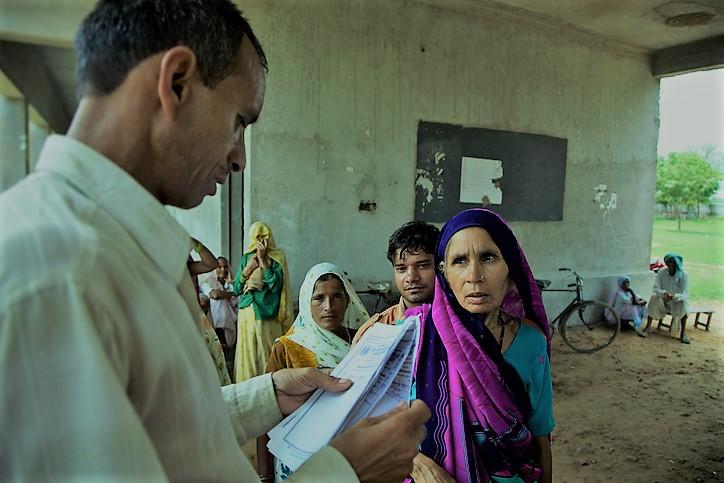An international team of experts has developed a list of core elements and checklist items to help hospitals around the world use antimicrobial drugs more responsibly.
The core elements, published yesterday in Clinical Microbiology and Infection, aim to define the essential and minimum standards for hospital antimicrobial stewardship programs (ASPs) in both high- and low-to-middle-income countries. While groups in the United States and other high-income nations have developed such standards, this is the first effort to develop a universal ASP framework "that could be relevant across both resource-rich and resource-limited contexts," the authors of the paper write.
ASPs aim to optimize the use of antimicrobials in hospitals through coordinated interventions that focus on providing patients with the right drug, at the right time, at the right dose, for the right duration. They are viewed as an essential mechanism for reducing antimicrobial resistance.
"We hope this work will be useful to those who develop national stewardship guidelines in their respective countries," Celine Pulcini, MD, PhD, paper co-author and a professor of infectious diseases at the University of Lorraine and Nancy University Hospital in France, said in a press release from the European Society of Clinical Microbiology and Infectious Diseases (ESCMID)—publisher of Clinical Microbiology and Infection.
"Antimicrobial resistance is a global problem that needs global solutions, for the benefit of the patients and the greater good."
Seven core elements
The seven core elements, based on a literature review and website search by an expert panel of infectious disease specialists, clinical microbiologists, and clinical pharmacists, include the following:
- Senior hospital management leadership toward antimicrobial stewardship
- Accountability and responsibilities
- Available expertise on infection management
- Education and practical training
- Other actions aimed at responsible antimicrobial use
- Monitoring and surveillance (on a continuous basis)
- Reporting and feedback (on a continuous basis)
In addition to these core elements, the experts also identified 29 checklist items that hospitals can use to determine whether the core elements are being met. The items include questions such as "Has your hospital management formally identified antimicrobial stewardship as a priority objective for the institution and included it in its key performance indicators?" and "Does your hospital monitor the quality of antimicrobial use at the unit and/or hospital-wide level?"
The authors of the paper say the core elements and checklist items provide a baseline of the key components required to start a hospital ASP, and they can be modified depending on factors such as clinical setting and resource availability. "Even though most of these checklist items may not currently exist in most hospitals in low-income countries, we included all of them on the list because our main objective was to identify universally relevant, essential elements and items based on the best available evidence," they write.
The core elements and checklist items are similar to those developed by the Centers for Disease Control and Prevention (CDC) for US healthcare facilities in 2015. The CDC's seven core elements are leadership commitment, accountability, drug expertise, action, tracking, reporting, and education. The CDC checklist includes 22 items, 12 of which are similar to the checklist items developed for global ASPs.
The authors of the new framework say they deliberately chose more comprehensive and generic checklist items that could be relevant for hospitals in any setting.
They also suggest that implementing and maintaining hospital ASPs around the world will not be possible without education for health professionals and the public and "strong commitments from policy makers, senior leadership, and national initiatives to guarantee access to good-quality, equitably priced essential antimicrobials."
The next step, the authors say, will be to test the core elements and checklist items for feasibility in a range of settings.
See also:
Apr 3 Clin Microbiol Infect paper
Apr 3 ESCMID press release
























